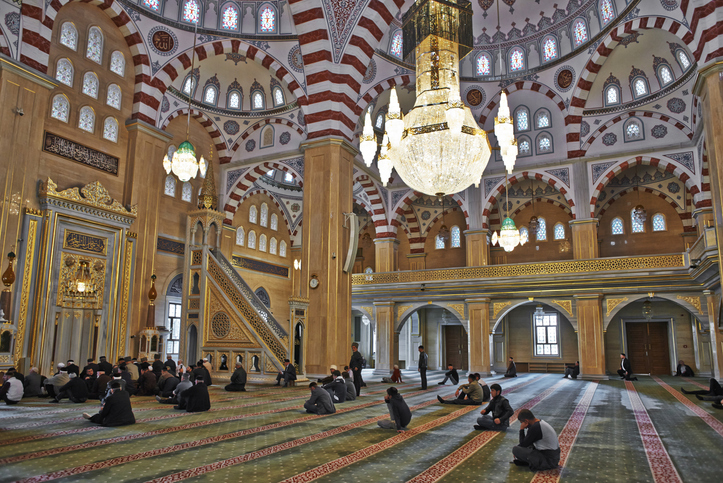Russia has launched Islamic banking for the first time as part of a two-year pilot programme.
The experiment, which started on September 1, is the first time the country’s legislation has officially endorsed Islamic finance.
Russia has a Muslim population of around 25 million. It is seen as a significant step for Russia and could pave the way for the broader adoption of Islamic banking in the country.
On August 4, Russian President Vladimir Putin signed a law introducing Islamic banking to assess its “feasibility.”
The pilot programme takes place in four Muslim-majority republics – Tatarstan, Bashkortostan, Chechnya and Dagestan. If the programme proves successful, the plan is to introduce the new regulation to the rest of the country.
Analysts say the Russian economy is increasingly turning to the East due to hostility with the West following its invasion of Ukraine.
Introducing Islamic banking in Russia is seen as a way to attract foreign investment from the Middle East and other Muslim countries to Russia.
Islamic banking potential
According to Russia’s largest lender, Sberbank, the Islamic finance market is expected to grow rapidly both in Russia and globally. Sberbank’s Senior VP Oleg Ganeev predicts the Islamic finance market will grow at a rate of 40% and reach $7.7 trillion by 2025.
Islamic banking is different from regular banking because it follows rules based on Islamic law. These principles prohibit usury and interest, which are deemed unjust.
Instead, Islamic banks work more like partners with their customers, sharing profits and risks. This approach contrasts with conventional finance, which relies heavily on debt-based transactions.
Islamic banks also avoid investing in things that can harm society, like alcohol or gambling. This ethical stance reflects Shariah principles and promotes responsible financial practices.
Another important element of Islamic banking is that it does not allow risky deals, like betting on the stock market. This ensures everyone’s money is safe, mitigates risks, and prevents financial crises, which sets it apart from conventional finance.
History of Islamic finance in Russia
Russia offers state support programs for mortgage financing and small to medium enterprises. These initiatives rely on interest-bearing loans, which conflict with Shariah principles.
The new law seeks to address some of these limitations and provide the groundwork for further development of Islamic finance.
Islamic banking in Russia emerged after the 2008 financial crisis when banks faced liquidity issues.
Then, in 2014, when Russia invaded Crimea, Western countries put more pressure on Russian banks through sanctions. Islamic banking gained more traction as Russia sought to establish ties with Muslim-majority regions.
Russia’s energy revenues have shielded the country from feeling the full impact of current Western sanctions following the invasion of Ukraine. But the country is eager to further minimise its reliance on the West and enhance its economic relationships with the East.









